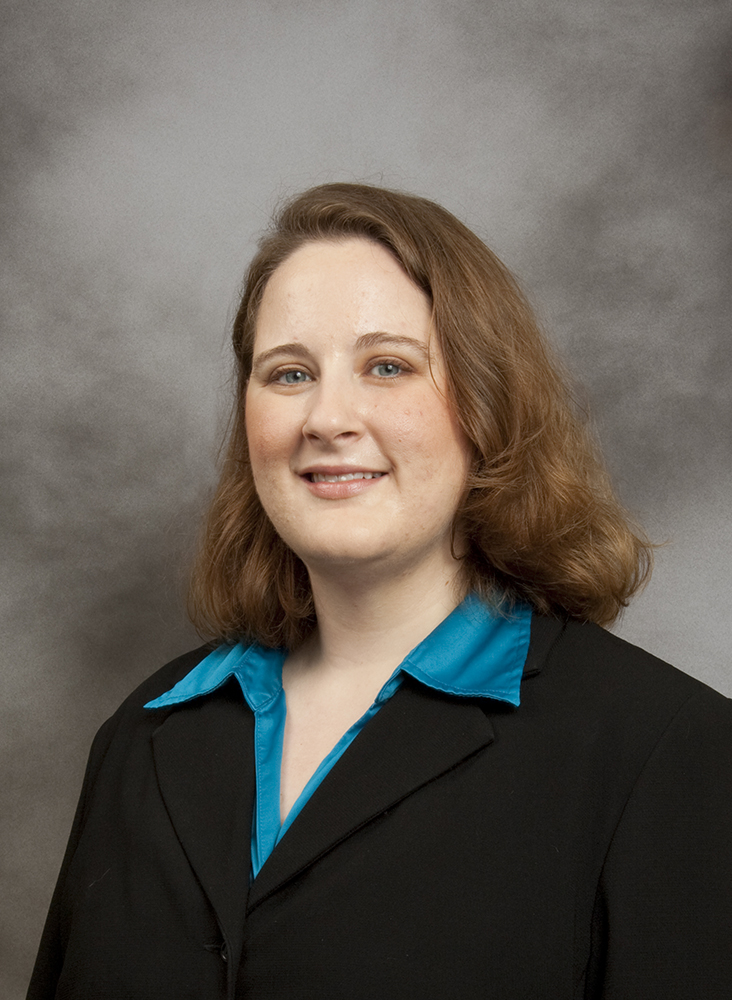 When a would-be teacher walks into a classroom for the first time, according to Lander University associate professor of English Dr. Lillian Craton, it's a make or break moment.
When a would-be teacher walks into a classroom for the first time, according to Lander University associate professor of English Dr. Lillian Craton, it's a make or break moment.
"You either love it, or you want to run screaming from the room," she said.
Craton's moment of reckoning came the summer before she started graduate school at Emory University, when she accepted a job preparing high school students for the Scholastic Aptitude Test (SAT), and her experience fell into the former category.
"The pleasure that I got out of teaching was immediate and obvious," she said. "It was clear that this was what I was going to be doing for the rest of my life."
Where Craton would teach was determined on Valentine's Day 2007, when she interviewed with Lander. She saw "a sense of community and a sense of investment in individual people that I'd never experienced before. It was immediate chemistry," she said.
In the six years that Craton has been associated with Lander, she has performed at a high level, an achievement that was recently recognized when she was named Lander's Distinguished Professor of 2013.
Each year, the Distinguished Professor Selection Committee chooses a winner from a list that includes a nominee from each department and two at-large nominees selected by vote of the student body. Craton said that being one of the nominees selected by the students "made it really exciting for me. Being recognized by your peers is wonderful, but having the students vote to recognize you is even better."
The Atlanta native, who specializes in 19th century British literature, teaches a wide array of courses, including Romanticism, Victorianism and Readings in British Literature. She read British author Charlotte Bronte's Jane Eyre as an 11-year-old and was immediately hooked.
"Jane Eyre is and likely always will be my favorite book," she said. "I read it at that perfect moment when you're old enough to understand it on a fairly deep level but young enough to suspend disbelief and inhabit a fictional world completely. I was right about Jane's age at the start of the book, and in my head, I was Jane for that entire summer. My husband gets a little tired of being compared to Mr. Rochester, I'm afraid."
Craton is a voracious reader and enjoys all kinds of books -- "pretty much anything that's well-written. I think the only real requirement for me to love a book is that there has to be a character I can identify with."
She believes that "empathy is what literature is all about," and she relishes the moments when she is successful in getting her students to form a personal connection with the material.
"For me, anything that I teach my students is useless if it does not become part of who they are, of who each student is. For me, the difference between pointless teaching and good teaching is the difference between me rattling off information that may or may not be meaningful to the students and me demonstrating to the students, showing the students, emphasizing, convincing them that what we are talking about is relevant to them."
For some professors of English, the necessity of teaching freshman composition is a bitter pill to swallow, but Craton looks forward to it. "My freshmen are my children," she said. "I think they can tell that I feel that way about them, that I care very deeply."
She and her colleague, associate professor of English Dr. Renee Love, are working on a book about the freshman experience, Writing Pathways to Student Success, which they hope to publish in a year or two. Craton describes it as "an edited collection of essays by teachers of freshman composition classes at a wide range of different institutions. The goal is to look at the extra-disciplinary skills -- life skills like time management, empathy building, professionalism, tolerance -- that students learn in composition courses."
One of Craton's immediate goals is overseeing the transition between Lander's Honors International Program and its new Honors College, which makes its debut this fall.
"That's my new baby," she said -- "getting this to a nice, healthy, stable place."
She believes that program changes -- which include making foreign travel an option rather than a requirement -- will "make Honors more attractive to students and more accessible to a wider variety of students."
The interest expressed thus far has been encouraging. Craton said that 35 former Honors International Program students have switched over to the new Honors College, and the 30 or so additional applications she has received are "more than we expected."
Craton, who recently led a study tour to England, Scotland and Ireland with assistant professor of political science Dr. Lucas McMillan, also has a "new-old goal -- doing what I can with the new group of students coming in. Each freshman class is sort of a fresh start for me, too, as a teacher."
As a young teacher, Craton tended to see herself as something of a performer. Her approach is different now, she said.
"Part of the struggle that I've had as I've matured as a teacher has been learning to let go of the teacher-centered classroom, even though it means giving up some of the things that are the most fun for me, and turning over more of the control for the discussion and content to the students."
However, she adds, "I'm definitely not one of those teachers who will never lecture or never give you my point of view."
Asked what winning the Distinguished Professor of the Year Award means to her, Craton said, "it's an enormous honor, especially considering the caliber of teaching and research done by my colleagues. It means a lot to be thought of as distinguished in such fine company."